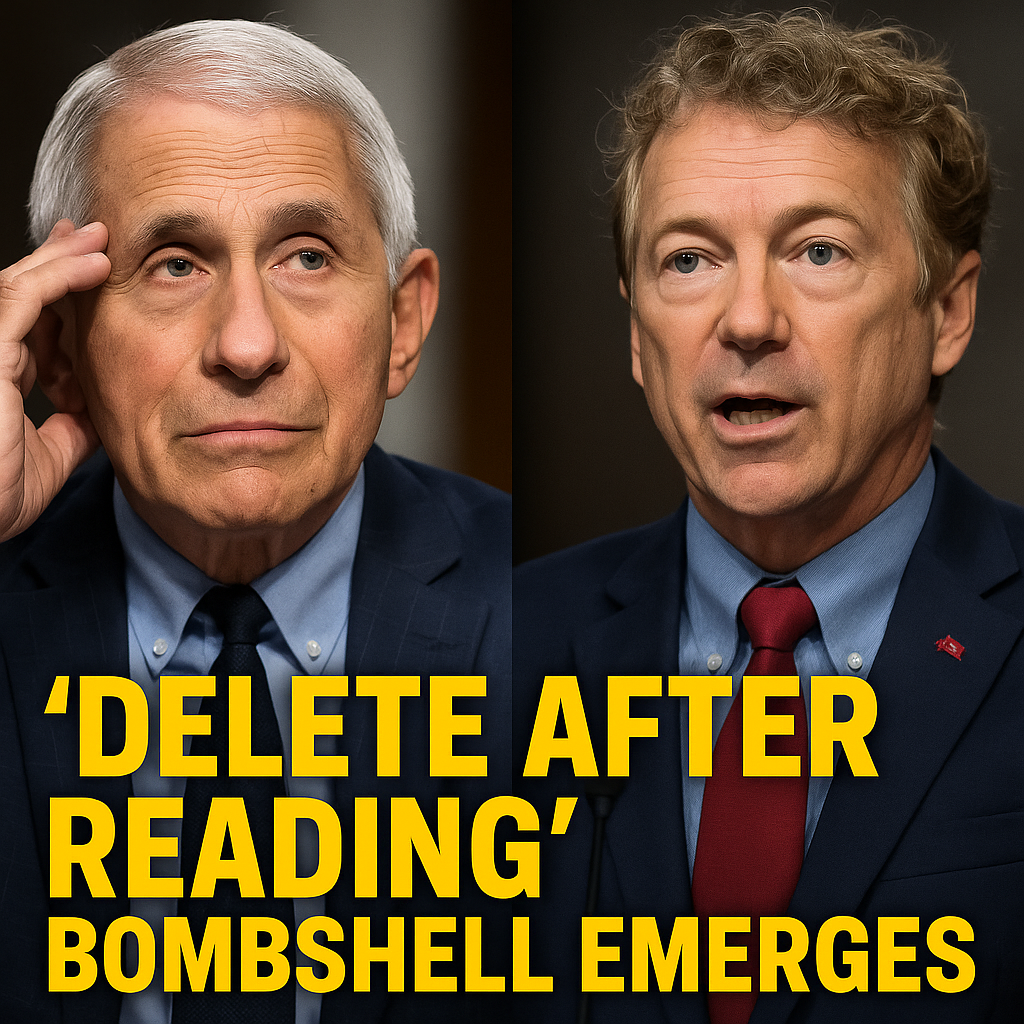Sen. Rand Paul Re-ignites Scrutiny Over Fauci’s Email Conduct
Senator Rand Paul (R-KY) has renewed his call for Dr. Anthony Fauci to testify before Congress—this time based on newly surfaced emails which, according to Paul, instruct recipients to delete them after reading.
These emails, obtained by the Senate Homeland Security and Governmental Affairs Committee and publicized by Senator Paul on X, directly conflict with Fauci’s sworn 2024 testimony regarding his transparency during the COVID-19 crisis.
The revelation adds to longstanding concerns among conservatives that public health officials may have circumvented legal responsibilities to preserve federal records.
Rand Paul insists the emails are evidence of “destruction of public records,” underscoring an alleged pattern of conduct at odds with federal record-keeping laws.
In his statement, Paul asserted that such directive—telling staff to delete records after reading—stands in stark contrast to Fauci’s previous assurances of compliance with transparency.
This development follows prior revelations tied to Fauci adviser David Morens. Morens, a senior NIH official, was revealed in 2024 to have deleted numerous emails, used private Gmail accounts to conduct official business, and coordinated with NIH staff to evade Freedom of Information Act (FOIA) requests.
“[I] learned from our foia [sic] lady here how to make emails disappear after I am foia’d [sic] but before the search starts,” Morens wrote in a Feb. 24, 2021, email. “Plus I deleted most of those earlier emails after sending them to gmail [sic].”
One particularly damning email had Morens writing that he “learned from our FOIA lady here how to make emails disappear after I am FOIA’d but before the search starts,” adding that he then deleted most earlier emails after forwarding them to Gmail.
Morens’s conduct prompted bipartisan outrage and spurred Congressional demands for accountability. Senator Paul likewise flagged these communications as warranting further inquiry—but the newly surfaced emails attributed directly to Fauci raise the bar.
Critics argue that such directives may violate 18 U.S. Code § 2071, which prohibits willful and unlawful removal, destruction, or concealment of federal records. Senator Paul is calling for Fauci’s reappearance on this basis.
While these allegations echo past controversies, they strike a particularly resonant chord with a constituency that values rule of law and institutional accountability.
Fauci, who served as the longtime NIAID director and guided public messaging during the pandemic, has long been a target for Republican criticism. Paul’s renewed call is rooted in ensuring elected officials uphold legal duties—especially in the management of public health crises.
Praised by many for his stewardship through global health emergencies, Fauci is now facing new scrutiny based on contemporaneous documents, not mere political speculation.
Rand Paul, invoking the new email evidence, reiterated demands for Fauci to explain why employees were told to delete emails. Paul contends that ignoring these records could obstruct accountability and hinder future oversight.
This situation is emblematic of broader concerns about how government agencies preserve—or discard—sensitive internal communications. Conservatives point to these behaviors as insulation from scrutiny and transparency.
Senator Paul’s actions extend beyond rhetoric: he has formally urged that Fauci provide a full accounting before Congress and, if warranted, be subject to legal consequences for any violations.
Though Fauci has not yet responded publicly to this latest request, the mounting pressure may force action. His response—or lack thereof—could define public trust in institutional integrity.
These revelations come as the public continues to evaluate pandemic-era governance, transparency, and institutional accountability. For many conservatives, the email directives reinforce skepticism about central authorities and emphasize the importance of oversight.
What makes this development notable is the direct link to Fauci himself, as opposed to proxies. Whether the emails reflect internal caution or intentional concealment will shape ensuing investigation and public discourse.
As the Senate considers next steps, this controversy underscores the importance of preserving public records—especially when they relate to national emergencies. Senator Paul’s efforts are widely viewed as part of a broader push for governmental accountability.
Ten High-Value Keywords:
-
Fauci email deletion
-
Rand Paul subpoena
-
Federal records violation
-
COVID-19 transparency
-
FOIA evasion
-
NIAID email scandal
-
Congressional oversight
-
Public record destruction
-
Senate investigation Fauci
-
Government accountability

